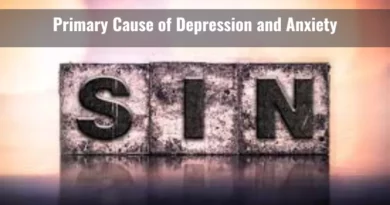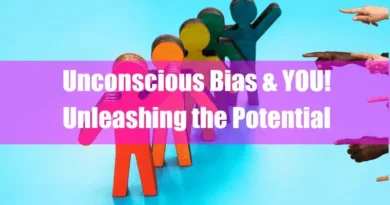I. Introduction
Never suppress a generous thought because acting on it benefits both you and others. It fosters kindness within you, creates positive connections, and might even brighten someone’s day – all from a simple act of generosity.
A. What is a generous thought?
A generous thought refers to a compassionate and selfless idea or impulse that arises within us, motivating us to take actions that benefit others without expecting anything in return. It involves a genuine desire to positively impact the world around us.
B. The importance of generosity
Generosity fosters empathy, compassion, and a sense of interconnectedness. It benefits the recipients of our generosity and enhances our well-being and satisfaction. It contributes to the creation of a more harmonious and caring society.
C. How suppressing generous thoughts can impact us
Suppressing generous thoughts can negatively affect both our personal growth and our relationships with others. When we suppress generous impulses, we miss opportunities to connect with others, experience fulfillment, and make a positive difference in the world.
II. The Power of Generosity

A. How generosity benefits the giver
Generosity has numerous benefits for the giver. Scientific research has proven that acts of generosity stimulate the release of feel-good hormones in our brains. This, in turn, leads to increased happiness and well-being. Giving selflessly provides a sense of purpose and fulfillment, fostering a positive outlook on life.
B. The effects of acts of kindness on others
Simple acts of kindness can have an intense impact on others. A helping hand, a small gesture, or a kind word of generosity can brighten someone’s day, uplift their spirits, and restore their faith in humanity. It can create a Butterfly effect, inspiring others to engage in acts of kindness.
C. The ripple effect of generosity
Generosity has a ripple effect that extends far beyond the initial act. When we choose to be generous, we impact the immediate recipient and inspire others who witness the act. This ripple effect can spread kindness, compassion, and positive change throughout communities and society.
Continue reading Never Suppress a Generous Thought: Generous Thought Process.
III. Overcoming the Fear of Being Vulnerable
A. Why do we sometimes suppress generous thoughts?
We may suppress generous thoughts due to the fear of vulnerability. The fear of judgment, rejection, or being taken advantage of can make us hesitant to act on our generous impulses. Recognizing and addressing these fears is essential to unlocking the power of generosity within us.
B. The fear of judgment or rejection
The fear of judgment or rejection can prevent us from expressing our generosity. We may worry about how others will perceive our actions or whether they will reciprocate our kindness. Overcoming this fear involves embracing vulnerability and understanding that genuine acts of generosity are valuable regardless of others’ opinions.
C. Embracing vulnerability and its rewards
Embracing vulnerability allows us to express our generous thoughts and intentions authentically. It opens the door to deeper connections and meaningful experiences. By being vulnerable, we invite others to be their authentic selves, fostering genuine connections and creating opportunities for empathy and understanding.
IV. Embracing Generosity in Daily Life
A. Small acts of kindness in everyday situations
Generosity doesn’t always require grand gestures. We can embrace generosity in our daily lives through small acts of kindness. Holding the door open for someone, offering a sincere compliment, or simply listening attentively to someone in need can make a significant difference in their day.
B. Being attentive and empathetic towards others
Embracing generosity involves being present and attentive to the needs and emotions of those around us. By practicing empathy, we can better understand the challenges others face and extend kindness and support when needed. Small acts of empathy can have a profound impact on someone’s well-being.
C. The immense joy of giving without any expectations of receiving in return
True generosity lies in giving without expecting anything in return. When we detach ourselves from the desire for reciprocation or recognition, we experience the pure joy of selfless giving. This joy stems from knowing that we have positively impacted someone’s life, regardless of external validation.
Continue reading Never Suppress a Generous Thought: Generous Thought Process.
V. Generosity and Personal Growth
A. Developing a generous mindset
Developing a generous mindset involves shifting our perspective from scarcity to abundance. By recognizing that generosity is not a limited resource but an endless wellspring, we can cultivate a mindset that embraces giving and contributes to our personal growth and fulfillment.
B. Cultivating gratitude and compassion
Generosity is deeply connected to gratitude and compassion. By cultivating gratitude for what we have and acknowledging humanity’s interconnectedness, we develop genuine care for the well-being of others. Compassion fuels our desire to alleviate suffering and contribute positively to others’ lives through acts of generosity.
C. How generosity contributes to personal fulfillment and happiness
Generosity, personal fulfillment, and happiness share an intrinsic link. When we align with our values and act on our generous impulses, we experience a sense of purpose, satisfaction, and joy. Generosity expands our capacity for love, compassion, and connection, enriching our lives.
VI. Breaking the Cycle of Self-Centeredness

A. The negative effects of self-centeredness
Self-centeredness can have detrimental effects on our well-being and relationships. When we prioritize our own needs and desires at the expense of others, we create barriers to genuine connection and limit our capacity for generosity. Breaking the cycle of self-centeredness is essential for personal growth and cultivating meaningful relationships.
B. The shift from “me” to “we.”
Embracing generosity requires a shift from a self-centered mindset to one that values collective well-being. It involves recognizing that our actions impact others and actively seeking opportunities to contribute positively to the lives of those around us. This shift from “me” to “we” fosters empathy, cooperation, and a sense of shared responsibility.
C. Building stronger relationships through generosity
Generosity strengthens relationships by fostering trust, deepening connections, and creating a sense of reciprocity. We build a foundation of support and understanding when generous with our time, attention, and resources. This generosity contributes to stronger and more meaningful relationships with family, friends, and communities.
Continue reading Never Suppress a Generous Thought: Generous Thought Process.
VII. Overcoming Barriers to Generosity
A. Addressing the scarcity mindset
The scarcity mindset is a barrier to generosity. The belief that there is not enough to go around leads to a fear of scarcity and a reluctance to give. Overcoming this mindset involves shifting our perspective to one of abundance, recognizing that generosity begets abundance and that there is always enough to share.
B. Challenging societal expectations
Societal expectations can sometimes discourage generosity, emphasizing individual success and wealth accumulation. Challenging these expectations involves questioning the status quo and prioritizing generosity over self-centeredness. It requires a commitment to create a more compassionate and inclusive society.
C. Finding opportunities to be generous
Generosity presents itself in various forms and opportunities throughout our lives. By being mindful and actively seeking opportunities to be generous, we can make a positive impact. Whether it’s volunteering, supporting a cause, or simply offering a helping hand, there are countless ways to express generosity and contribute to the well-being of others.
Continue reading Never Suppress a Generous Thought: Generous Thought Process.
VIII. The Domino Effect of Generosity
A. How one act of kindness can inspire others
One act of kindness has the power to inspire others to follow suit. When someone witnesses an act of generosity, it can evoke feelings of warmth, gratitude, and a desire to pay it forward. This domino effect amplifies the impact of generosity, creating a collective wave of kindness that spreads throughout communities and society.
B. Creating a culture of generosity
Generosity has the potential to create a culture shift. By consistently and intentionally practicing generosity, we create a culture that values compassion, empathy, and support. This culture of generosity fosters a sense of belonging and encourages others to embrace generosity.
C. The collective impact of small acts of generosity
When multiplied, small acts of generosity create a significant collective impact. Each act contributes to a larger movement of positive change. By recognizing the power of our actions, no matter how small, we can contribute to a world where generosity is the norm rather than the exception.
Continue reading Never Suppress a Generous Thought: Generous Thought Process conclusion and FAQs.
IX. Conclusion
In Conclusion, embracing and never suppressing a generous thought is a transformative choice that benefits ourselves and others. Generosity allows us to break free from self-centeredness, cultivate personal growth, and build stronger relationships. By overcoming barriers, embracing vulnerability, and actively incorporating generosity into our daily lives, we contribute to a ripple effect of kindness and compassion. Let us nurture a culture of generosity, inspiring others and making a lasting effect on the world.
X. FAQs
1. Why is generosity important?
Generosity is important because it allows us to contribute positively to the well-being of others. It brings joy and fulfillment to both the giver and the recipient, fostering stronger connections and creating a more compassionate society.
2. Can small acts of kindness make a difference?
Absolutely! Small acts of kindness can majorly impact someone’s day or life. They can uplift spirits, restore faith in humanity, and inspire others to be kind.
3. How can I overcome the fear of being vulnerable when generous?
Overcoming the fear of vulnerability requires self-compassion and an understanding that being vulnerable is a strength. Recognize that genuine acts of generosity come from the heart and are more important than the opinions of others.
4. What are some practical ways to embrace generosity in daily life?
Embracing generosity in daily life can be as simple as being attentive and empathetic towards others, offering a helping hand, or expressing gratitude and appreciation. Look for opportunities to make someone’s day a little brighter.
5. How can I cultivate a generous mindset?
Cultivating a generous mindset involves practicing gratitude, developing empathy, and aligning your actions with your values. Focus on humanity’s interconnectedness and the positive impact you can make through acts of generosity.










Comments are closed.